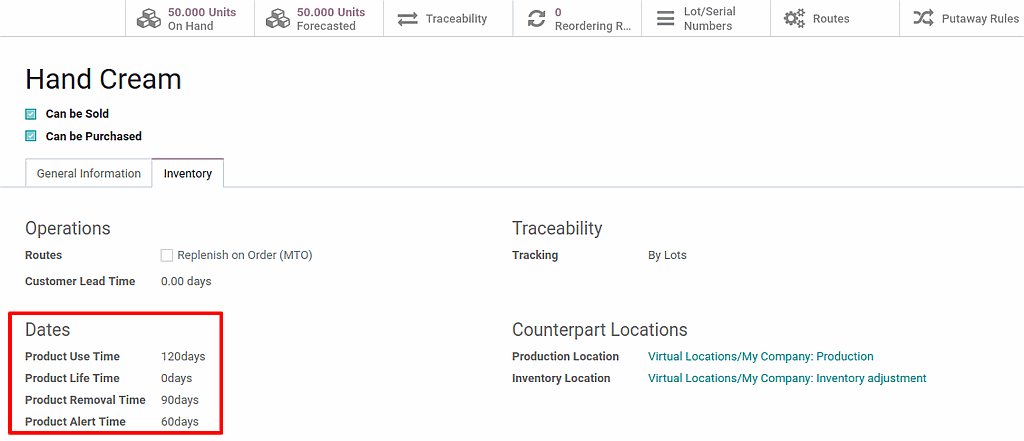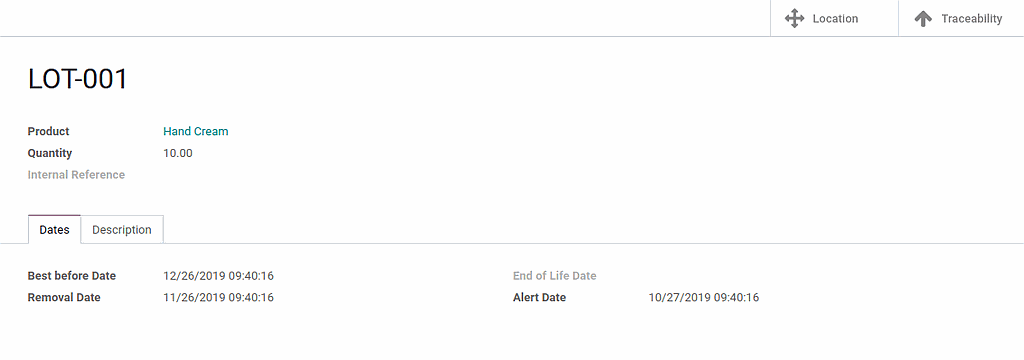Manage expiration dates
In many companies, products have expiration dates and they should be tracked based on those dates. In the food industry, for example, tracking stocks based on expiration dates is mandatory to avoid selling expired products to customers.
With Odoo, you can track your products based on their expiration dates, even if they are already tracked by lots or serial numbers.
Configurations
Application configuration
To use expiration dates tracking, open the Inventory application and go to Configuration --> Settings and activate the Lots & Serial Numbers and Expiration Dates features.

Product configuration
Now, you have the possibility to define different dates in the inventory tab of the product form:
- Product Use Time: it’s the number of days before the goods start deteriorating, without being dangerous yet. It will be computed using the lot/serial number;
- Product Life Time: refers to the number of days before the goods may become dangerous and must not be consumed. It will be computed on the lot/serial number;
- Product Removal Time: shows the number of days before the goods should be removed from the stock. It will be computed on the lot/serial number;
- Product Alert Time: refers to the number of days before an alert should be raised on the lot/serial number.

Expiration Date on Lots/Serial Numbers
When receiving a product in stock, the dates will automatically be updated on the corresponding lot/serial number. This update will be based on the reception date of the product and the times set on the product form.


Expiration Alerts
You can access all your expiration alerts from the inventory app. To do so, go to Master Data --> Lots/Serial Numbers. There, you can use the pre-existing filter that shows all the lots/serial numbers that exceeded their alert date.

